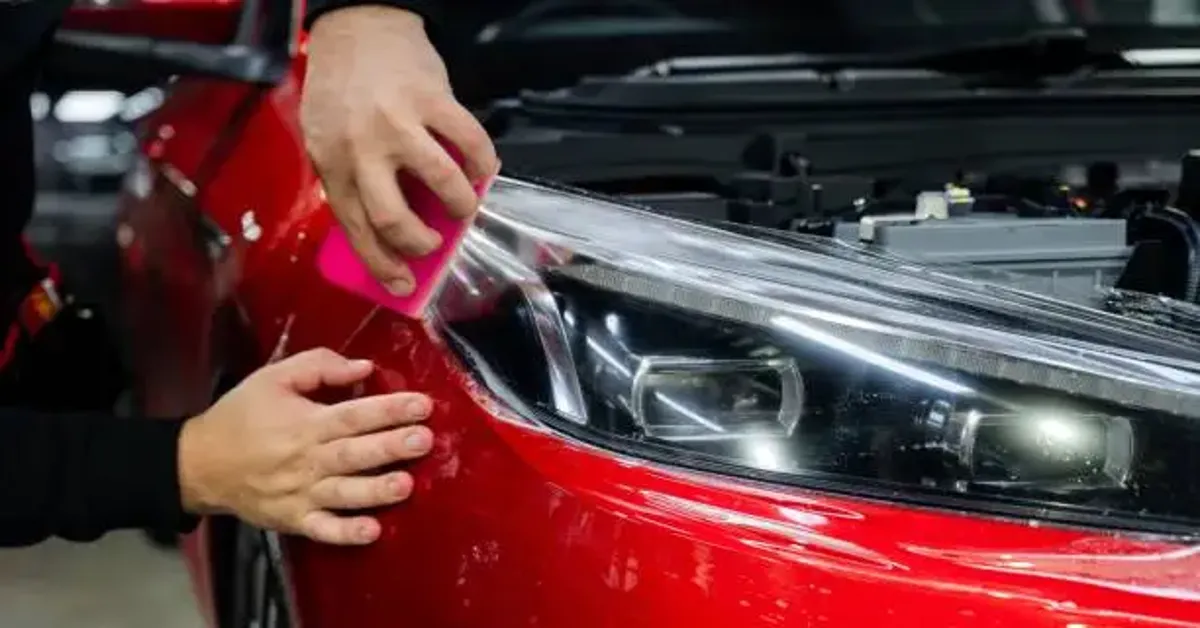Maintaining a car’s resale value is often a priority for vehicle owners who anticipate upgrading, trading in, or selling their cars in the future. While routine servicing and mechanical upkeep are important, the condition of a car’s exterior plays a significant role in determining its resale worth. A vehicle with visible chips, scratches, or paint damage may appear neglected, even if it functions perfectly. That’s where paint protection film (PPF) comes in. This nearly invisible shield defends a car’s exterior against road debris, UV rays, harsh weather, and more. We will explore how investing in PPF can make a powerful difference in maintaining the long-term value of a vehicle by keeping it visually appealing and protected.
Why Paint Protection Film Matters for Long-Term Resale Value
- Shields Against Everyday Damage
Roads can be unforgiving. From flying gravel on the highway to insects, salt, and tar, a vehicle’s front end, side mirrors, and fenders often bear the brunt of everyday driving. Paint protection film serves as a transparent barrier between these hazards and the car’s paint. Even during routine commutes, subtle abrasions accumulate—whether it’s from debris, shopping carts in parking lots, or car wash brushes. Over time, these scratches become noticeable and can dull a car’s appearance. When left unchecked, they may even require expensive paint correction or panel respraying. PPF acts like a skin, absorbing minor damage while leaving the paint underneath intact. It allows car owners to drive with less worry, knowing their vehicle’s paint is shielded from both intentional and accidental harm. That long-term physical protection keeps the vehicle looking newer for longer, directly impacting its resale value in a competitive market where condition often determines buyer interest and pricing.
- Preserves Original Paint and Factory Finish
Original factory paint holds more value than a repainted surface. Dealerships and buyers are often wary of resprayed panels, interpreting them as signs of past accidents or neglect. PPF maintains the original paint by preventing damage from reaching the surface in the first place. Once applied, the film adheres tightly and seamlessly to the body of the car, preserving the untouched paint beneath. It also prevents color fading caused by ultraviolet exposure, a common problem for cars parked outdoors. The film reflects damaging UV rays, minimizing oxidation and keeping colors vibrant and consistent over time. For owners of luxury or custom-painted vehicles, this preservation is even more important. Repainting can reduce originality and authenticity, especially when factory codes and finishes can’t be replicated precisely. By keeping the paintwork intact, PPF ensures the vehicle retains its aesthetic value, which appraisers, buyers, and dealers closely consider when assessing a car’s worth.
- Improves Appearance During Resale Viewings
First impressions matter, especially when selling a car. A gleaming, scratch-free vehicle exterior speaks volumes to a potential buyer. It suggests the car has been cared for and might signal that the rest of the vehicle—mechanical parts, tires, and interior—has been maintained just as well. Paint protection film keeps the car looking showroom-ready, reducing the need for detailing or last-minute polishing before listing or viewing. It also resists discoloration and does not yellow over time, especially when using premium-quality film such as that applied by services like Precision Performance Films. The clear, smooth surface enhances gloss and depth, giving the car a polished appearance. Buyers are often more inclined to pay a premium or agree to asking prices when the vehicle looks pristine. This visual impact can make negotiations easier and faster. Maintaining that “like-new” look is not just about vanity—it’s about securing leverage during resale.
- Minimizes the Cost of Cosmetic Repairs
Minor cosmetic damage might seem insignificant at first, but over time, the costs to fix such issues add up. Paint chips can lead to rust if left untreated. Scratches can spread or deepen, making repairs more complicated. When selling a car, even small imperfections may be used by buyers as bargaining points to negotiate a lower price. PPF helps car owners avoid these scenarios by reducing the likelihood of such damage in the first place. It acts as a sacrificial layer that can be replaced without affecting the car’s bodywork. If a section of the film becomes damaged, it can often be removed and reinstalled in that area only—without repainting the entire panel. This reduces out-of-pocket costs before resale and saves time during preparation. In many cases, PPF ensures no repair is necessary at all, especially when applied early in a car’s life. Fewer repairs mean a cleaner resale record and more retained value.
Protecting a car’s resale value doesn’t just depend on regular maintenance and mileage—it heavily relies on visual condition and first impressions. Paint protection film provides a smart and durable solution to preserve a vehicle’s exterior, shielding it from daily road hazards, sun damage, and scratches that degrade its appearance over time. By maintaining the integrity of the original paint, enhancing the vehicle’s look during showings, and minimizing the need for costly repairs, PPF plays a direct role in keeping resale values high. Whether you plan to sell your car soon or hold onto it for years, applying PPF ensures your vehicle stays in excellent shape for the long haul. It’s an investment in your car’s future that pays off in more ways than one—most notably when it’s time to put a price on your vehicle and find the right buyer.

